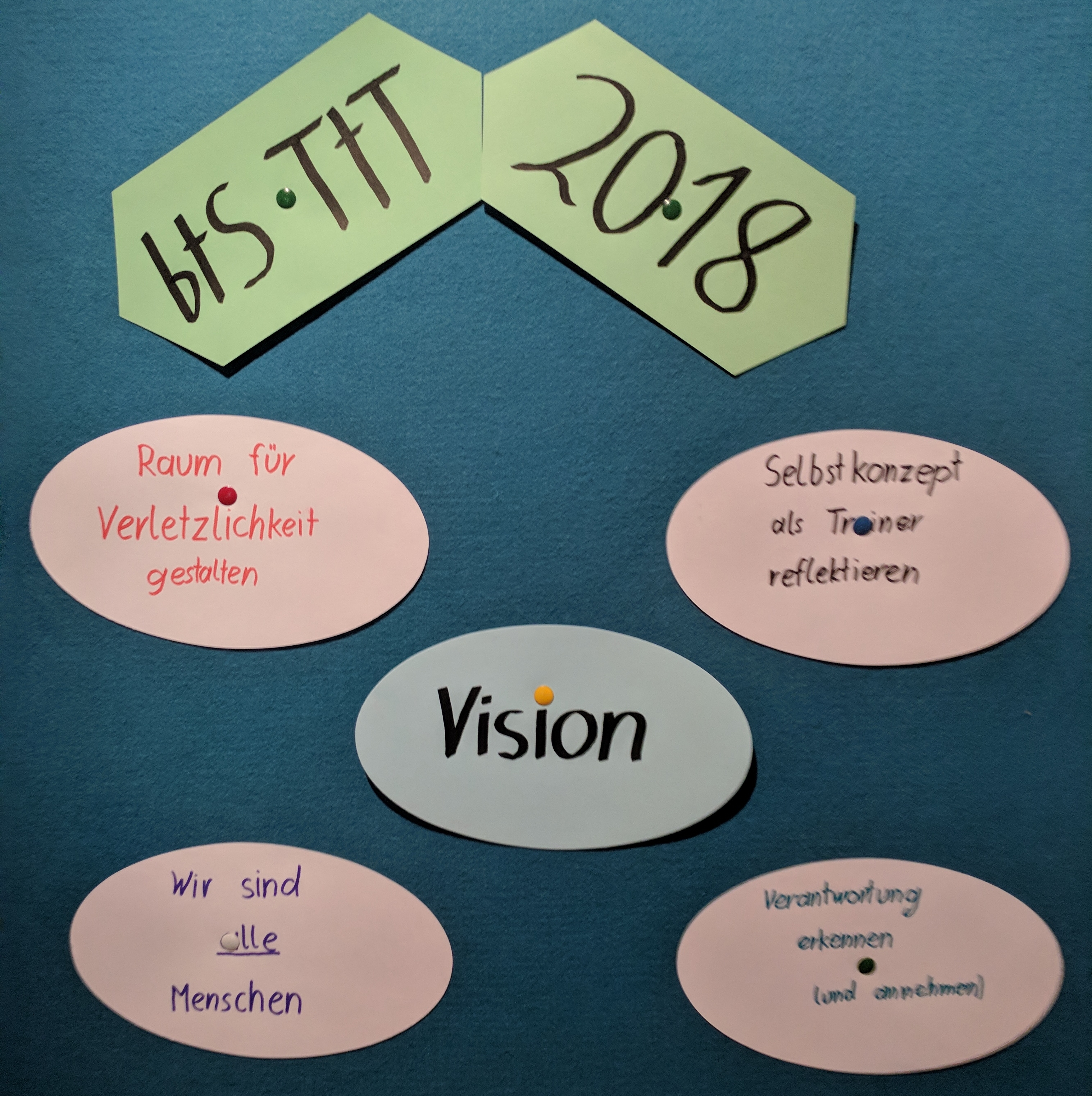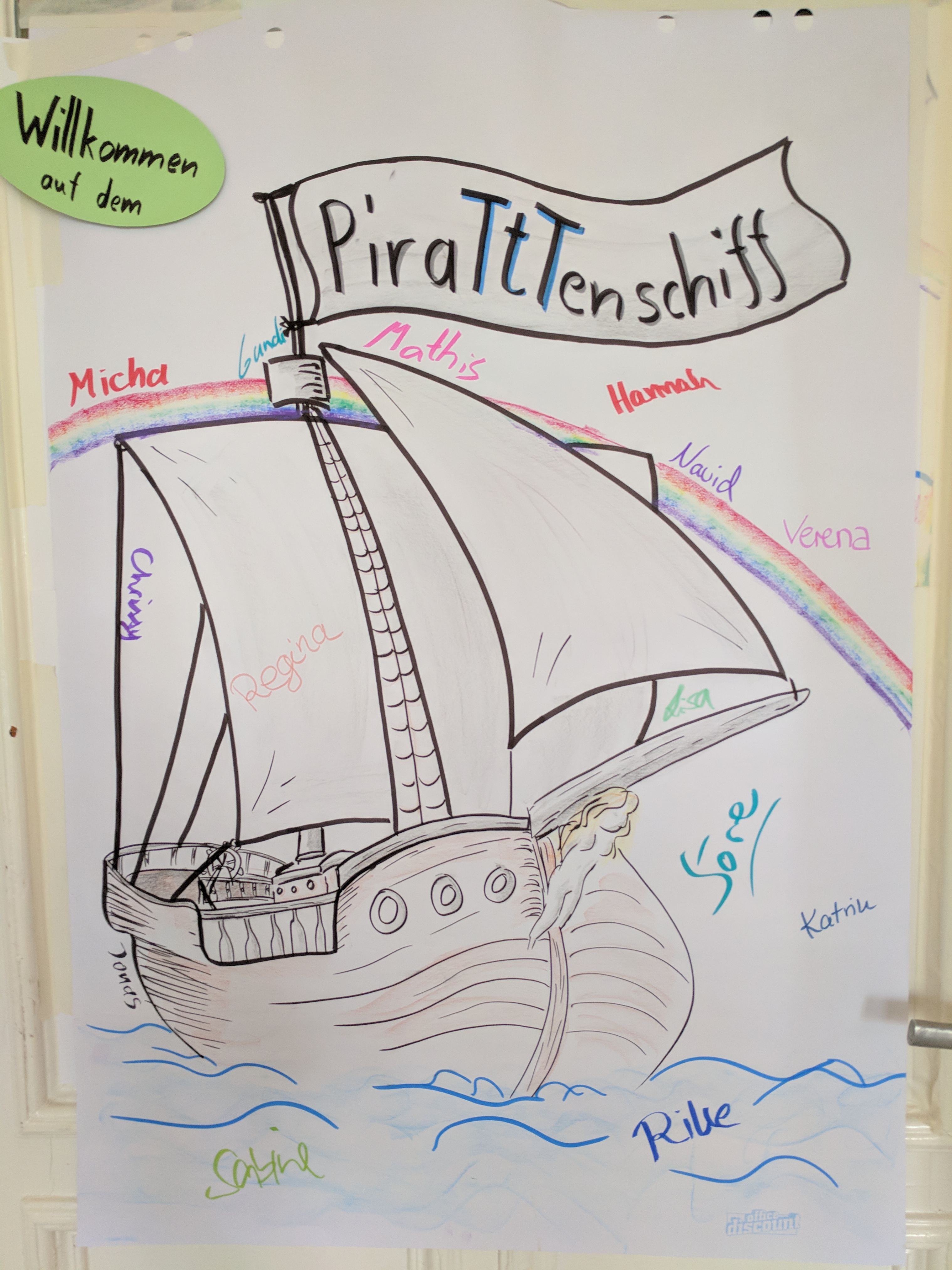 What is the most crucial thing to develop as an educator?
What is the most crucial thing to develop as an educator?What are the Fundamentals, or: What is Water?
If you have not yet read David Foster Wallace's well-known "This is Water" speech, I suggest you continue reading his passages full of wisdom rather than this website. (And if you are not the reading type, here's a video visualizing it)
...the most obvious, ubiquitous, important realities are often the ones that are the hardest to see and talk about...
This 'banal platitude' is at the core of many competency-based learning challenges: If not the models and the skills, what makes a highly competent person?
To bring this back to Train the Trainers sessions (TtT): Most TtT I attended were conceptualized on a knowledge-based or skill-based level. But beyond that, what is it that unconsciously competent trainers do so well? What is the water of their reality?
btS TtT: An Opportunity to Find Water
In 2018 I had the opportunity to design a Pilot TtT for the German organization btS e.V. with four fellow instructional designers. This TtT would enable the student-members of this organization to provide better quality internal trainings. We were given free reign on what to do for a 7 day off-site TtT program for 10 participants.
This is a rather unusual setup: With a density of 2-3 participants per trainer in a fully controllable space, this training was a golden opportunity to innovate.
Four Core Principles
I met with my colleagues for a long weekend of design that led to this project. Rather than talking about details and content, we focused on value and vision alignment for this TtT innvoation, leading us to four principles that summarize our perspective: When you are a trainer, this is water.

Create Space for Vulnerability
I appreciate John Erpenbeck's perspective on the role of emotions in learning. In short:
Emotions are necessary to adapt values.
Values are necessary to turn a skill into a competence.
John Erpenbeck calls emotional lability (the ability to feel and process emotions connected to a task) a key requirement to develop competencies. In short: Creating an emotionally safe and vulnerable environment is necessary to work with the 'real' participants (and the real participants' challenges) rather than with work personas.
Reflecting on Self-Concept as a Trainer
The volunteering field especially attracts people who want to engage constructively with others, leading to many different motivations to take on the role of trainer. Understanding and accepting that different concepts of what it means to be an educator are equally valid and enabling participants to develop a personal and individual understanding of their role as trainer is crucial to develop trainers that act proactively.
The TtT provided daily reflection spaces dedicated to individual participant reflection, crystallizing their own concept of a trainer.
Recognizing Responsibilities (and taking them on!)
As the passage on emotional vulnerability showed: Learning is a very intimate process. Understanding the professional responsibilities of a trainer and acting in the best interest of the participants' overall well-being and growth can become a challenging act; we ensured participants experienced the responsibilities of a trainer and develop healthy routines in the more taxing training contexts.
During the TtT, participants were given daily spaces to prepare and facilitate themselves, taking ownership on the group process.
We are ALL people
The trainer-trainee relationship is a rather complex one. Especially in more socratic contexts, the role of the educator is rather to host the learning process rather than guiding it. It is not constructive here to employ self-centered expert attitude.
This was mostly a call to us TtT-facilitators to ensure we act on eye level with participants.
The TtT's Pirate Theme


Agenda
